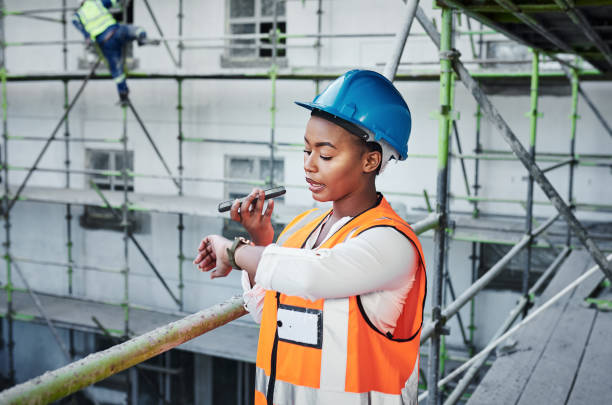Construction delays have constantly plagued the building industry, often leading to skyrocketing costs, frustrated clients, and strained relationships between contractors and stakeholders. However, many of the delays that do occur are not inevitable—they can be prevented with careful planning, clear communication, and appropriate risk management. Understanding how to anticipate and mitigate potential delays before they occur is critical for project success.

1. Comprehensive Planning and Scheduling
One of the most effective ways to prevent delays is through meticulous planning from the very start.
- Detailed Project Scope: Clearly define the project’s scope, objectives, and deliverables. Ambiguities often result in misunderstandings and work stoppages.
- Realistic Scheduling: Develop a timeline that accounts for all tasks, dependencies, and potential bottlenecks. Tools like Gantt charts or project management software (e.g., Primavera P6, MS Project) can help visualize task sequences and critical paths.
- Resource Allocation: Ensure that labor, equipment, and materials are available when needed. Shortages or mismanagement can halt construction entirely.
2. Early Risk Identification and Management
Every construction project carries with it inherent risks. It is critical to identify them Identify as early as possible to prevent minor issues from becoming major delays.
- Site Assessment: One of the most important things to do is evaluate site conditions, accessibility, and environmental factors that could impact timelines.
- Permits and Regulations: Obtain all necessary permits, approvals, and inspections well in advance to avoid bureaucratic delays, which are a common occurrence in the construction industry.
- Contingency Planning: Build contingency buffers into your schedule for unexpected issues like weather events or supply chain disruptions.
3. Streamlined Procurement and Supply Chain Management
Material delays are one of the most common causes of construction setbacks.
- Early Ordering: Procure critical materials before they are needed on-site to prevent interruptions.
- Reliable Suppliers: Work with reputable suppliers and establish backup options in case of shortages or delays.
- Inventory Management: Maintain proper inventory levels for high-demand materials to avoid last-minute procurement challenges.
4. Effective Communication and Coordination
Poor communication between stakeholders can quickly derail a project.
- Regular Meetings: Hold frequent progress meetings with contractors, subcontractors, and clients to ensure alignment.
- Centralized Information Systems: Use project management platforms (like Procore or Buildertrend) to track progress, share updates, and document changes.
- Clear Roles and Responsibilities: Assign specific tasks and accountability to avoid overlaps or confusion.
5. Skilled Workforce and Proper Training
Human error is a leading cause of delays in construction.
- Qualified Labor: Hire skilled workers who understand their tasks and can execute efficiently.
- Training Programs: Offer safety and operational training to reduce on-site errors and accidents.
- Incentivize Productivity: Motivating the workforce through performance incentives can reduce inefficiencies.
6. Regular Monitoring and Adjustments
Even with careful planning, unexpected issues can arise. Early detection and proactive adjustments prevent these from escalating. Here are a few strategies you can use to aid with monitoring and adjustment to projects.
- Progress Tracking: Use KPIs (Key Performance Indicators) and progress reports to identify potential bottlenecks early.
- Adaptive Scheduling: Be flexible in adjusting schedules and reallocating resources when unforeseen challenges occur.
- Problem-Solving Culture: Encourage on-site managers to take initiative in addressing issues before they impact the overall timeline.
7. Leveraging Technology for Delay Prevention
Modern construction technology offers tools to anticipate and mitigate delays before they happen.
- BIM (Building Information Modeling): Allows visualization of the entire project to detect design clashes and scheduling conflicts.
- Drones and Site Sensors: Monitor progress in real-time and identify potential problems quickly.
- AI and Predictive Analytics: Forecast potential delays by analyzing historical project data, weather patterns, and supply chain trends.
Construction delays are not always unavoidable. Construction managers should employ proactive planning, effective communication, risk management, and modern technology to drastically reduce the likelihood of delays and keep projects on track. By anticipating potential issues before they arise and implementing strategies that keep all stakeholders aligned and accountable, we can avoid many delays.
No responses yet